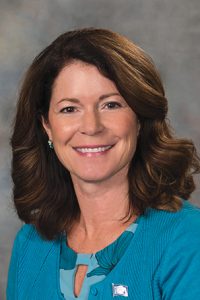ImagiNE Act reporting requirements, other changes advanced
A bill that would make several changes to Nebraska’s main business tax incentive program cleared the first round of debate April 6.
LB1150, introduced by the Legislative Performance Audit Committee, would set new requirements for tax incentive applications under the ImagiNE Nebraska Act, passed in 2020.
As introduced, the bill would have required applications to state whether locations in other states were considered for relocation or expansion of the taxpayer’s business and whether tax incentives offered by other states were considered.
It also would have required taxpayers to provide several pieces of information for the purpose of tax incentive performance audits, including the federal occupation code of new employees and the asset class for qualified property.
Sen. Suzanne Geist of Lincoln, the committee’s chairperson, said a Revenue Committee amendment would omit those requirements because they could reveal a company’s proprietary information.

“The remaining provisions will generate data that will help inform the Legislature about the ImagiNE Act’s impact on property taxes, workforce training activities and employee recruitment,” she said.
The amendment, adopted 34-0, would replace the bill with the amended provisions of LB1150 and several other proposals related to the ImagiNE Nebraska Act and other tax incentive programs.
Under the amended provisions of LB1150, ImagiNE Nebraska Act applications would have to include the most recent taxable valuations and levy rates for all qualified locations.
They also would have to include a program schedule for job training activities and the city and state where recruited employees lived if tax credits are used for those purposes.
The provisions of LB817, introduced by Sen. Lou Ann Linehan of Elkhorn, would make several technical changes requested by the state Department of Revenue.
Linehan said the measure would require the department to submit reports on tax incentive programs on a fiscal year, accrual basis that satisfies the requirements of the Governmental Accounting Standards Board.
Among other changes, her proposal also would allow the department to obtain employees’ Social Security numbers to confirm the number of new employees at a qualified location.
LB502, introduced by Norfolk Sen. Michael Flood, would allow certain businesses receiving tax incentives under the Nebraska Advantage Act to use a direct pay permit, as is allowed under the ImagiNE Nebraska Act. The provision would apply only to certain data center projects.
Linehan said such a permit allows a company to purchase qualifying equipment tax-free rather than file a sales and use tax refund claim later.
The amendment also contains the provisions of LB985, sponsored by Seward Sen. Mark Kolterman, which would change the definition of base year — which is used to measure employment growth for tax incentive purposes — under the ImagiNE Nebraska Act.
Under Kolterman’s proposal, if an applicant increased the number of equivalent employees at a qualified location in 2020 or 2021 in response to the COVID-19 pandemic, the base year would be 2019. The provision would apply to applications made in 2021 or 2022.
Kolterman said the change would apply to a company near Fremont that hired and then laid off employees during the pandemic. He said the company now seeks ImagiNE Act incentives to expand its operations and would be penalized by the current base year definition.
Finally, the amendment contains the provisions of Flood’s LB1094. Under his proposal, which also applies to the ImagiNE Nebraska Act, the time worked by employees in their Nebraska residence would be considered spent at a qualified location if the employee works at both locations.
Sen. John McCollister of Omaha introduced an amendment, adopted 33-0, that includes the provisions of his LB457.
They would require the department to notify each metropolitan and primary class city of the total amount of local option sales tax refunds that are estimated to be paid to taxpayers during the following calendar year under certain tax incentive programs.
McCollister said the proposal would help Omaha and Lincoln budget for those refunds, which can fluctuate from year to year.
Following adoption of the McCollister amendment, senators voted 35-0 to advance LB1150 to select file.

